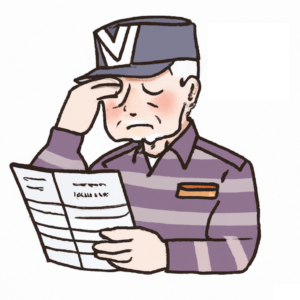Navigating the Termination of TDIU Benefits: What Veterans Need to Know
Posted by Gregory M. Rada | March 16, 2023 | Disability Compensation
Introduction
A total disability rating based on individual unemployability (TDIU or IU) enables veterans to meet their basic financial needs when they are unable to work due to service-connected disabilities. There may be situations, however, when the Department of Veterans Affairs (VA) might propose to discontinue entitlement to TDIU benefits.
In this blog post, I will discuss the reasons that the VA might propose to terminate a veteran’s entitlement to TDIU benefits, as well as what the veteran can do to continue receiving TDIU benefits.
What is TDIU or IU?
TDIU stands for “a total disability rating based on individual unemployability.” It is also referred to as individual unemployability or IU, and it is a disability compensation benefit where the VA will pay a veteran at the 100% payment rate even though the veteran’s combined rating is less than 100% in recognition that the veteran’s service-connected disability makes them unable secure and maintain substantially gainful employment.
What is the Definition of Substantially Gainful Employment?
There is no express definition of substantially gainful employment, but 38 C.F.R. § 4.16(a) states that substantially gainful employment is more than marginal employment. The regulation then states that marginal employment “generally shall be deemed to exist when a veteran’s earned annual income does not exceed the . . . the poverty threshold for one person.”
This means that if a veteran earns below the poverty threshold for one person, VA does not consider them to be substantially employed and the veteran can still be eligible for TDIU. Remember, earned income means income from working — it does not include your VA benefits, Social Security benefits, or any other type of income that is not derived from work.
Reasons VA Might Propose to Terminate TDIU
There are several scenarios where the VA might propose to terminate a veteran’s IU benefits:
- Improvement in the disability: If the VA notices that your conditions which make you unemployable have improved, they might propose to terminate your entitlement to TDIU benefits. This can happen even in situations where the VA has previously determined the veteran to be permanently and totally disabled (P&T status). Remember, nothing is permanent with the VA until you’ve had it for 20 consecutive years.
- Gainful employment: Every year, the VA does a cross-check with the Social Security Administration (SSA) to see if veterans on TDIU earned any income prior over the last year. If SSA reports to the VA that a veteran had earned income above the poverty threshold, then the VA will ask the veteran to explain the employment. From there, the VA might propose to terminate TDIU. There is an important protection in this scenario — 38 C.F.R. § 3.343(c)(2) states that TDIU will not be discontinued “without a determination that the veteran has actually secured and maintained substantially gainful employment for a period of 12 consecutive months.” This allows a veteran to ‘test the waters’ of employment before VA terminates TDIU.
- Fraud or misrepresentation: As with any VA benefit, if the VA learns that a veteran obtained TDIU benefits via fraud, misrepresentation, or any other dishonest means, they will likely terminate the benefits and could possibly refer the case to a US Attorneys Office for criminal prosecution. This includes ‘working under the table’ while receiving TDIU benefits.
- Death: Upon the death of a veteran, TDIU benefits, along with all disability compensation benefits, would be terminated. Surviving spouses and dependent children, however, might be eligible for Dependency and Indemnity Compensation (DIC) benefits.
What to Do if VA Proposes to Terminate your TDIU Benefits
If the VA proposes to terminate or discontinue your TDIU benefits, you should consider taking some of the following steps:
- Request a hearing: You have 30 days from the date of the letter notifying you of the proposed termination to request a personal hearing with VA. I highly recommend requesting this hearing because it gives the veteran a chance to speak directly with the VA as to why the VA should not discontinue TDIU benefits. Plus, the VA can’t terminate TDIU until it conducts the hearing, which could buy the veteran valuable time.
- Gather evidence: Understand the reason that VA is proposing to discontinue entitlement to IU, and start working on evidence to show that VA should not go through with the proposal. This could include medical evidence from your doctors showing that your disability has not improved.
- Seek legal representation: Losing entitlement to TDIU can be devastating and could result in a veteran being unable to pay their bills and potentially going going homeless. The VA can be very aggressive with proposed terminations, so I recommend speaking with a VA-accredited attorney to see if they can help you stop the proposal or get VA to reinstate TDIU benefits if entitlement has already been terminated.
Conclusion
The discontinuance of TDIU benefits can be an extremely stressful experience for a veteran and their family. It’s important to understand why the VA proposed to discontinue your IU benefits, and then take steps to show VA why TDIU should not be terminated.
Call me today at 800-955-8596 or schedule a free consultation so we can discuss how I can help you win back your TDIU benefits.








